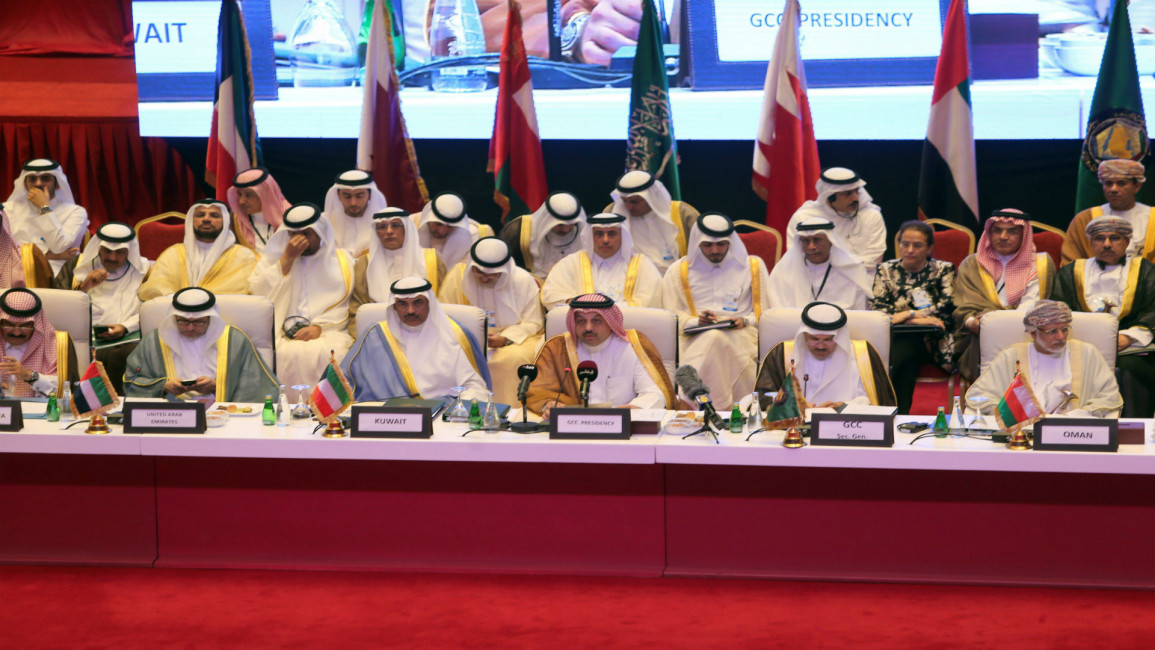
Who's afraid of low oil prices?
To answer this, we need to understand the relationship between oil and politics in the Gulf.
Firstly, oil revenues are the basis of the relationship between citizens and governments here. Gulf administrations' main function is to distribute oil revenues in the form of public sector salaries and educational, medical and housing infrastructure - through which the leaders can maintain the loyalty of citizens.
Secondly, oil is one of the most volatile commodities in the world. The barrel of oil that was sold for $147 in 2008 was worth just eight dollars in 1998.
Therefore, the spending of a rentier state severely fluctuates from time to time. Saudi Arabia's total spending in 1998 was approximately $50 billion - while, in 2012, the country spent some $54 billion on education alone.
Third, despite the relationship between citizens and governments being based on administrators ensuring the financial wellbeing of their citizens - which can not necessarily be maintained in periods of low oil prices - the relationship remains stable without any notable changes.
When oil prices reached their nadirs in 1986 and 1998, Gulf countries witnessed neither political unrest nor social movements calling for political change.
So how can we understand this? There are various theories as to why the people of the Gulf do not demand political change when governments are unable to meet their side of the rentier-state bargain.
Spend and save
One theory supposes that Gulf countries enjoy a high degree of lending flexibility to cover their expense in times of financial hardship, which governments use to continue providing the base minimum of public spending.
Proponents of this explanation point to Saudi Arabia's deficit at the end of the 1990s, which stood at $160 billion due to low oil prices during that decade.
Others believe that at times of oil crises, social movements do indeed appear - but they are limited in scope and appeal, and usually swiftly socially ostracised.
Yet another theory argues that political stability in rentier oil states is not so much to do with the power of the state, as it has to do with the expectations of its citizens.
In his book The Curse of Oil: How Petroleum Wealth Shapes the Development of Nations, political science professor Michael Ross dedicates a chapter - entitled More Petroleum, Less Democracy - to discussing the role of oil in hindering democratic transformation.
Ross argues that a citizen of an oil-rich country has their own calculations, whereby they compare what they pay the government in taxes and fees with what they receive from the government - in addition to comparing the oil revenues announced by the government with the amount they receive of that revenue.
| This political deal remains favourable to citizens even during times of economic austerity |
If the final sum indicates that the citizen receives more than they pay, and that they collect a reasonable amount of the country's oil revenues, they will hold on to the unspoken "political deal" between themselves and the government, and will be less likely to seek political change.
Governments and citizens alike are addicted to oil revenues.
For citizens, a guaranteed share of oil revenues in the form of salaries, services and subsidies is much more attractive than the concepts of democracy, freedoms and public oversight that have yet to offer a convincing alternative to the political covenant governing the Gulf.
This deal remains favourable to citizens even during times of economic austerity, because it seems that whatever the rentier state provides, even if it were very little, is still enough to please citizens and meet their lowest expectations.
So, who's afraid of low Gulf oil prices?
During this summer, we were inundated with predictions of a period of harsh austerity - after the region witnessed a boom in which a million dollars seemed like small change.
The Western press predicted a fall in oil prices worse than that of 1986, and panic spread in preparation for tight years to come.
Citizens hit hardest
Business tycoons fear the fall of oil prices, because oil revenues are essential for the cashflow that ensures they make a profit - but governments do not fear a thing, as long as oil reserves remain secure and credit remains available for them to continue perfoming as cohesive states.
However, no one will be as scared as the ordinary Gulf citizen, who may face unemployment, a lack of educational opportunities and other services. Ironically, the Gulf citizen will foot the bill of a drop in oil prices - precisely because he decided to accept the current political deal.
If the curse of austerity affects the Gulf in the coming years, citizens will be angry - but none will be angry enough to work towards political or economic reform.
In summary, political reform in the Gulf does not start with the region's governments and regimes, but with the region's citizens - who have very low expectations of change.
Eman al-Guwaifli is a Saudi analyst and writer. Follow her on Twitter: @emanmag
This is an edited translation from our Arabic edition.
Opinions expressed in this article remain those of the author and do not necessarily represent those of al-Araby al-Jadeed, its editorial board or staff.



